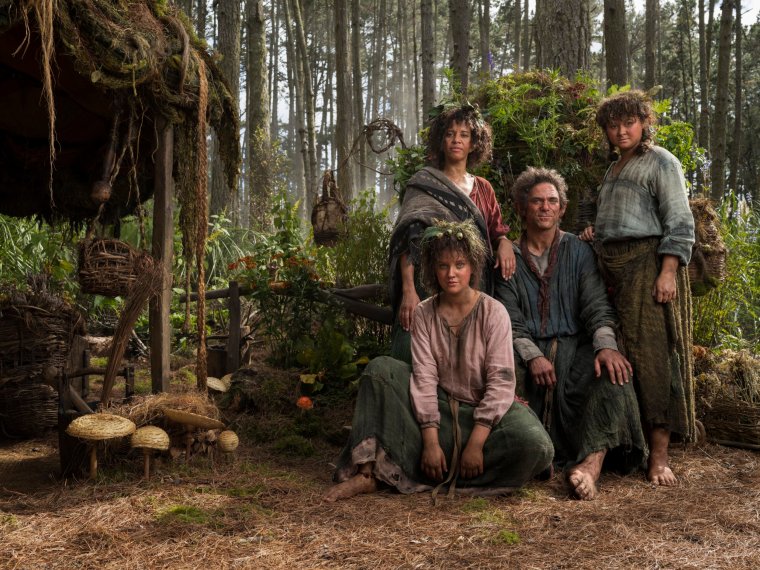To say that The Rings of Power has been eagerly anticipated is an understatement along the lines of describing JRR Tolkien’s original trilogy as a fairy tale.
At a budget of $1bn it’s the most expensive television series ever made, an epic undertaking in every respect, which has had the fansites – and the streaming industry analysts – abuzz ever since it was announced.
But, on the evidence of the first two episodes, how does it compare with its source material, Tolkien’s appendices which chronicled the millennia before Frodo, Gandalf et al appeared on the scene? With the Peter Jackson film adaptations to which it’s clearly indebted? And – perhaps most crucially – with House of the Dragon, the other behemoth roaming the fantasy landscape?
First things first; it looks fantastic. The opening scenes deliver stunning backdrops, a cast-of-CGI-thousands battle and an elven city as jaw-dropping as anything Jackson created – the money’s undoubtedly up there on screen. And they also do a good job of condensing the origin story of Tolkien’s world while introducing the series’ principal heroine, Galadriel (Morfydd Clark).
This younger incarnation of the elvish queen is a far cry from Cate Blanchett’s ethereal Middle-Earth mother. She’s a lion-hearted shieldmaiden with bitter memories of the war which vanquished Morgoth, the first Dark Lord. Convinced his principal lieutenant, Sauron, is still alive and brewing evil in the wild lands, she’s on an obsessive quest to find and destroy him.

Defying her high king, Gil-galad (Ben Walker) she spends much of the first two episodes beginning to assemble a Fellowship of her own. Fighting her corner at court is Elrond (Robert Aramayo), a half-elf who’s also brokering a truce with the dwarves’ mining kingdom to enable master craftsman Celebrimbor (Charles Edwards) to forge the titular rings – a bespoke jewellery range designed to bring harmony to all the races of Middle-earth. Well, what could possibly go wrong?
Add to that an elvish warden, Arondir (Ismael Cruz Cordova), who also senses trouble brewing on the borders, and the nomadic Harfoot tribe of hobbit ancestors encountering a mysterious giant and you have a lot of narrative plates spinning – perhaps too many. There’s a frustrating stop-start approach, seemingly designed to give each storyline an equal quota of screen time, which slows the proceedings down.
The dialogue’s often clunky, with cod mysticisms like “the wind that seeks to blow out a fire may cause it to spread” swiftly followed by Elrond being told “Celebrimbor has a new project; you’ll be working with him”, like an intern being assigned to the font redesign committee. And for those more used to the Game of Thrones universe, where multiple power blocs vie for supremacy and flawed characters exhibit varying degrees of ambition, loyalty, pragmatism and idealism, this is a world of good guys and bad guys which may seem a bit twee and old-hat to fantasy agnostics.
Related Stories
Tolkien purists will probably be equally aggrieved by the insertion of invented characters and storylines. But showrunners JD Payne and Patrick Mackay have taken a mass of material, originally presented as a chronicle with little in the way of dialogue or character development, and forged a compelling, coherent narrative that fills a mouth-watering gap. A largely unknown cast give it their all. The lush, otherworldly atmosphere is a refreshing contrast to GOT’s often tiresome wallowing in brutality, nudity and swearing.
And speaking as a Tolkien nerd since the age of 15 it stays true, as Jackson’s film versions did, to his legacy. The reason the books have sold in their millions for 70 years is that their themes – of individuals embracing their destiny, choosing good over evil (or not) and overcoming differences in a common cause – still resonate.

